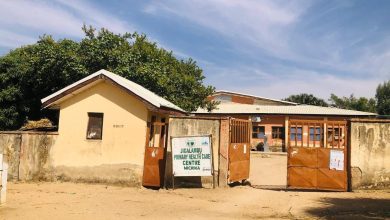Abandoned ₦5.4 Billion Road Project Turns Abuja Town Into Kidnappers’ Haven
Shere is about 20 kilometres away from Aso Villa, the seat of power in Nigeria’s capital city, but menacing kidnappers take advantage of its porosity and terrible roads to attack townspeople.
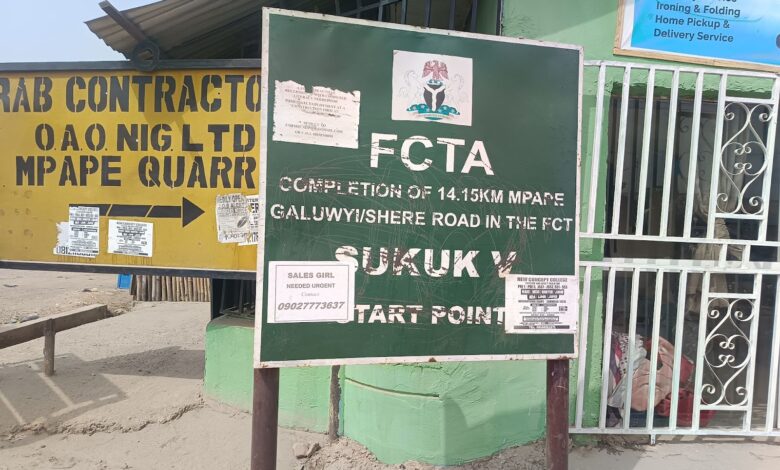
Earlier this year, community leaders in Shere imposed an unofficial curfew. Once it’s 5 p.m., they said, no one should ply the bumpy road connecting the community to the neighbouring Mpape town. Stay at home if you haven’t already set out at this time and don’t bother coming home once you’re caught up in town.
Criminal gangs operating around this community situated in the Bwari area of Abuja, North Central Nigeria, take advantage of the terrible condition of the road to attack villagers and passersby. Once it’s dusk, everyone knows danger lurks around. They either comply with the curfew or risk being abducted or ambushed.
Ibrahim Suleiman, a farmer who also doubles as an interpreter in a local court in the community, defied the curfew on many occasions. Local chiefs had warned him against this, but he remained obstinate. Everyone knows him to be a community non-conformist who believes “no human being can block my way in the day or at night and go scot-free”.
One evening, Ibrahim ran into trouble with kidnappers operating in the Abuja suburb. The miscreants had blocked the Shere road with a huge thorny tree to set anyone plying it off guard. Ibrahim fell into the trap.
Riding a motorcycle, he saw a bread hawker, who would soon disappear suddenly. He rode faster to see if something was wrong. Then, a strange man wielding a Dane gun stood in his way. He wanted to fight, but four other heavily armed men grabbed him from the back and tied him down.
They would neither kill nor rob him. They marched him into the forest, where he would be held captive. They tied his right hand with another victim’s left hand and cocked their rifles to signal their readiness to fire if they tried to escape.
“We trekked for more than four hours before we stopped at a location I wasn’t familiar with,” Ibrahim recalled. “Then, they took out some smoked yams for us to eat and seized our phones before tying us together with a long chain.”
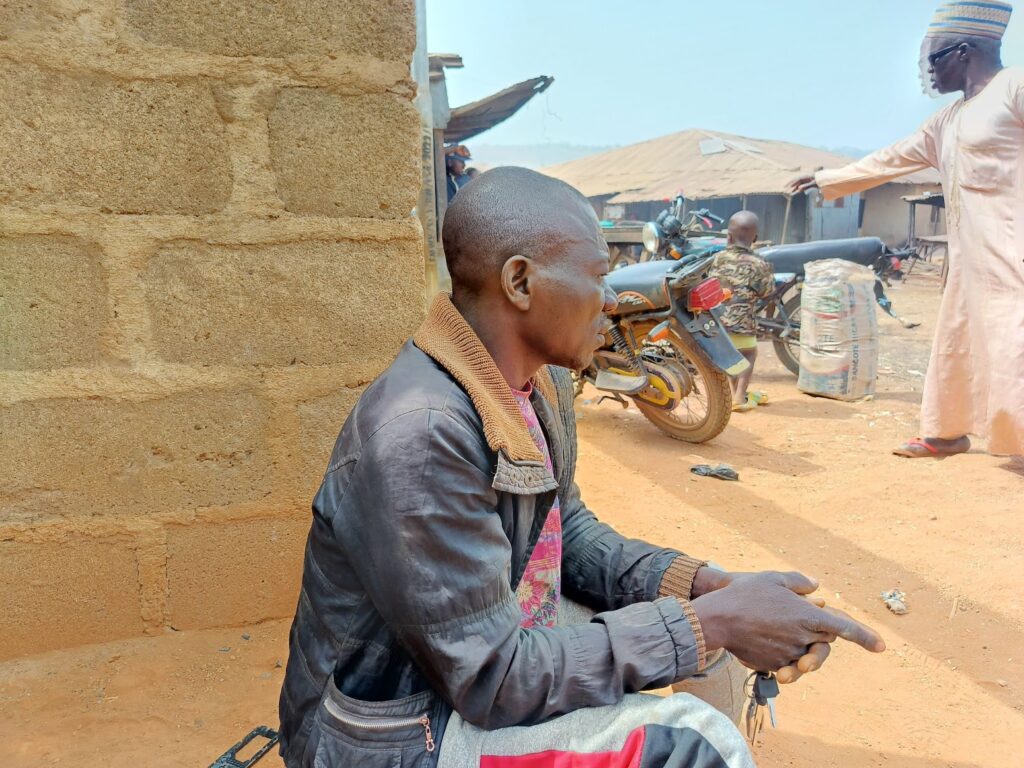
Close to Aso Villa, far from safe
Shere community is about 20 kilometres away from Aso Villa, the seat of power in Nigeria’s capital city, but menacing kidnappers take advantage of its porosity to attack townspeople. Surrounded by hills, rocks, caves and interstate forests, criminal elements find it easy to ambush unsuspecting commuters and disappear quickly into the woods with captives. The landscape wilderness is not only a hiding place for the terrorists, but it also serves as an illegal route to cross to neighbouring states or evade surveillance by security agents.
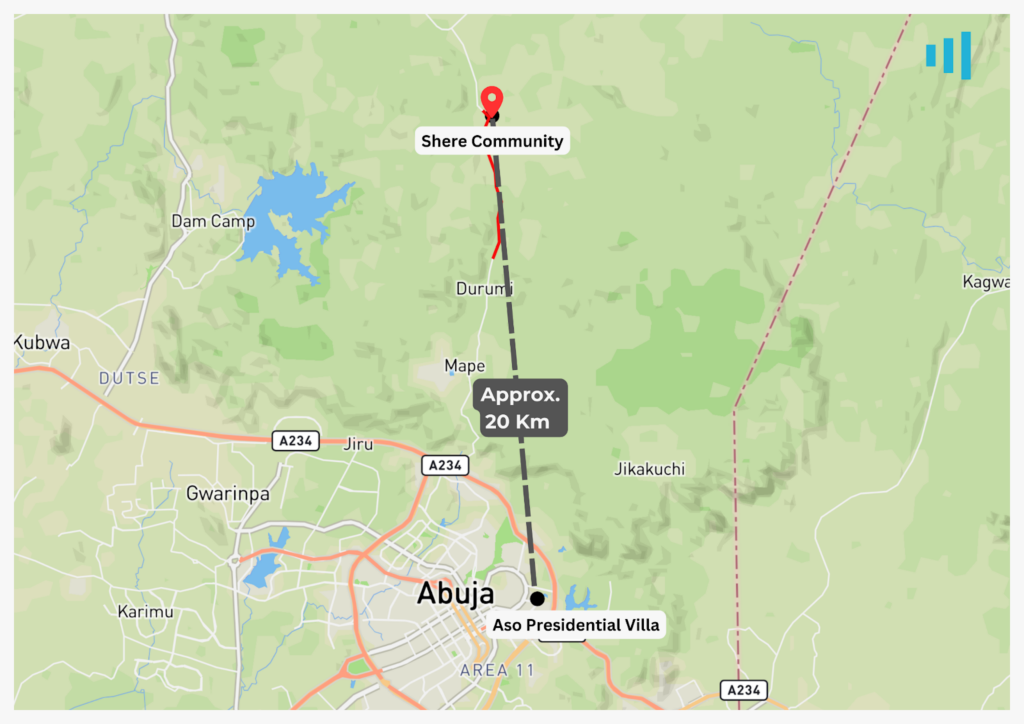
HumAngle spoke to many in Shere, including the local monarch, chiefs, land surveyors and villagers. They all echo one thing: The government’s abandonment of the Shere-Galuwyi road network is aiding terrorists’ activities in the hilly area. They also said it seems authorities have forgotten about their existence, as they lack basic amenities of life, including electricity, potable water and good road networks.
The insecurity menace is not peculiar to Shere alone. In the past months, terrorists dominating neighbouring states expanded their operations to other towns and villages in Abuja. The Bwari Council Area, where Shere is located, was at the centre of these kidnap-for-ransom syndicates who found solace in the remote area to perpetrate crimes.
What appears to be the most controversial attack in this axis was the kidnapping of six sisters by terrorists who demanded a ransom of ₦60 million (about $3,900) from the family of the victims. When the family failed to comply on time, the terrorists killed one of the victims and warned the parents to pay or lose the other girls. The abduction grabbed the attention of many on social media, who began a fundraising campaign through the hashtag #Najeebahandhersisters.
The five other girls were later freed after their ransom was crowdfunded and paid.
Everywhere was tense in Abuja at the time, and people were scared they could also fall victim. This caused the police force to launch the Special Intervention Squad (SIS) to fight kidnappers terrorising the capital city.
Unknown to many, the kidnappers in Shere are more elusive and have been around long before the recent kidnapping trend in Abuja. Villagers and community chiefs told HumAngle about the long history of kidnapping that has now turned Shere into an open cage where no one can move freely.
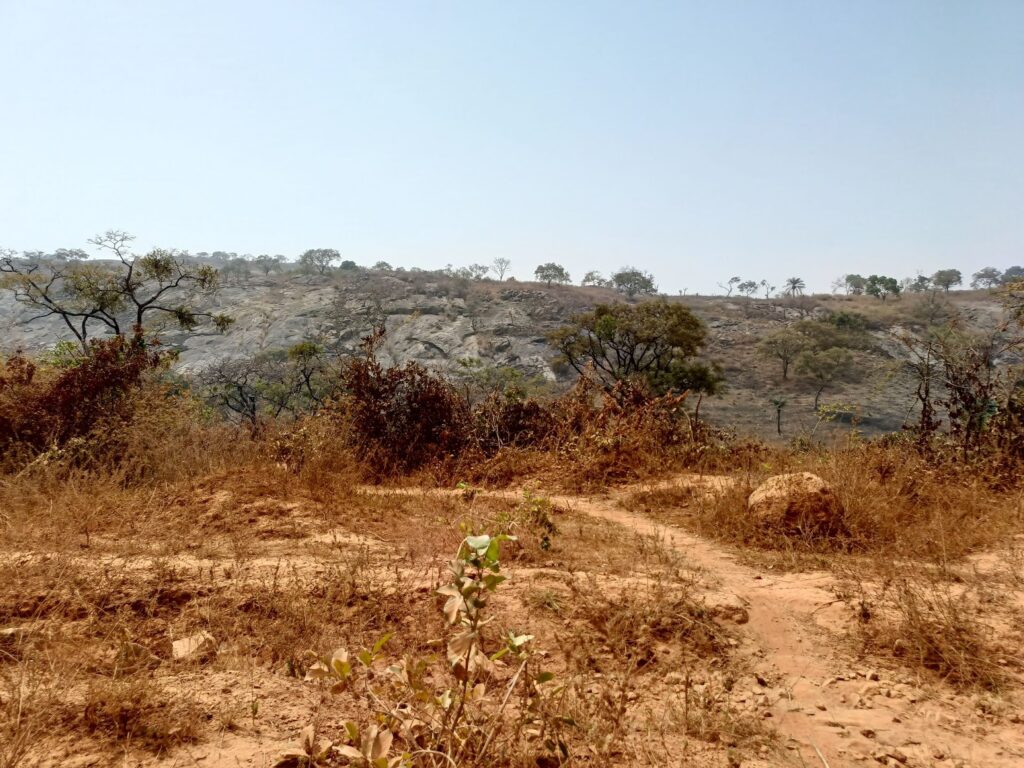
In April 2019, three police officers living in the Shere-Galuwyi settlement were waylaid and abducted upon their return from a peacekeeping mission. One managed to escape, but the two others were led into a thick forest through the Shere-Galuwyi road. The police mobilised other officers to rescue them but failed.
When it was clear the police would not be able to track the kidnappers, relatives of the abducted cops gathered a ransom of ₦1.4 million and delivered it to the abductors. Still, the officers were not freed.
“And till today, nobody knows the update on them,” one local chief told HumAngle. “I think they later killed them,” another interjected.
The criminal syndicate operating along the Shere road forged a trap path for their unsuspecting victims. Alhaji Mikere and his son fell into the trap in 2020. They were marched through the forged path to a thick forest around the Lower Usman Dam in Abuja, where they would be camped for weeks until they paid over ₦1 million.
Sometime in 2021, one Mallam Garba was returning from Mpape town around 7 p.m. when kidnappers hiding on the Shere road ambushed him. He was shot in the back for resisting abduction and died on the spot. His lifeless body was recovered from the scene of the attack the following day.
Attacks and kidnapping activities continually happen in Shere with little to no media coverage. The abduction of Ibrahim and the bread seller was not the first this year and wouldn’t be the last. Three days after the incident, a man and two of his relatives went missing, only for his family to be contacted by the kidnappers a few days later. They spent about three weeks in captivity until a ransom running into millions of naira was paid.
Again, on May 5, around 11 p.m., the marauding criminals picked up people in Piko, a small village surrounded by mountains in Shere. They kidnapped 14 people, after which four were released on account that they were sick or physically challenged. The police in the community tried to rescue the abductees, but they were said to be scared of possible ambush from terrorists hiding around the hilly area.
“As we speak, 10 people are in captivity. Now they are demanding a ransom of about ₦90 million,” Hamzah Buhari, a resident, said when we interviewed him in May.
Residents blame these attacks on the bad conditions of the Shere-Galuwyi road and say someone in the corridor of power is behind the project’s abandonment.
Abandoned ₦5.4bn road project
In 2022, a whopping ₦5.4 billion ($3.5 million) was approved by the FCT authority to construct a motorable road from Mpape to Shere-Galuwyi, a resettlement housing community in the Bwari Council Area. The contract for the 14-kilometre road was awarded to Messrs Vipan Global Investment Resources with the expectation that the project would be completed within 18 months.
When Musa Bello, the former FCT minister, announced the approval of the construction of this road, he expressed concern that the lives of people living in Shere and its surroundings might be endangered if the road is not rehabilitated.
“If this road is not constructed, it will lead to further decay of the development at the resettlement site, heighten security concerns and thereby amounting to colossal loss of financial resources as well as constituting a clog in the developmental strides of government,” Bello stated.
The road would truthfully become a regular pathway to terrorist camps where kidnap victims are camped and ransoms are negotiated.
It was not the first time that road would gulp billions of naira in the name of contract awards. It was abandoned and re-abandoned year after year.
The project was awarded and later abandoned in 2006 when Nasir El-Rufai was the FCT minister. It remained uncompleted when he left office.
In 2010, the Federal Executive Council (FEC) approved the contract for the construction of the same road for ₦1.56 billion, also setting an 18-month completion deadline and with the assurances that there was a provision of ₦750 million in the year’s budget for the project.
When Nyesom Wike emerged as the FCT minister in 2023, concerned community members in Shere quickly wrote to him, asking him to ensure the completion of the road since he’s “known to be Mr Project”.
“Other than the days of Nasir El-Rufai, who initiated the Mpape to Shere-Galuwyi road project, the indigenes and residents of Shere and its environs have not been as optimistic as they are today about the prospect of the completion of this age-long road project,” the community members prayed in a letter dated Dec. 8, 2023.
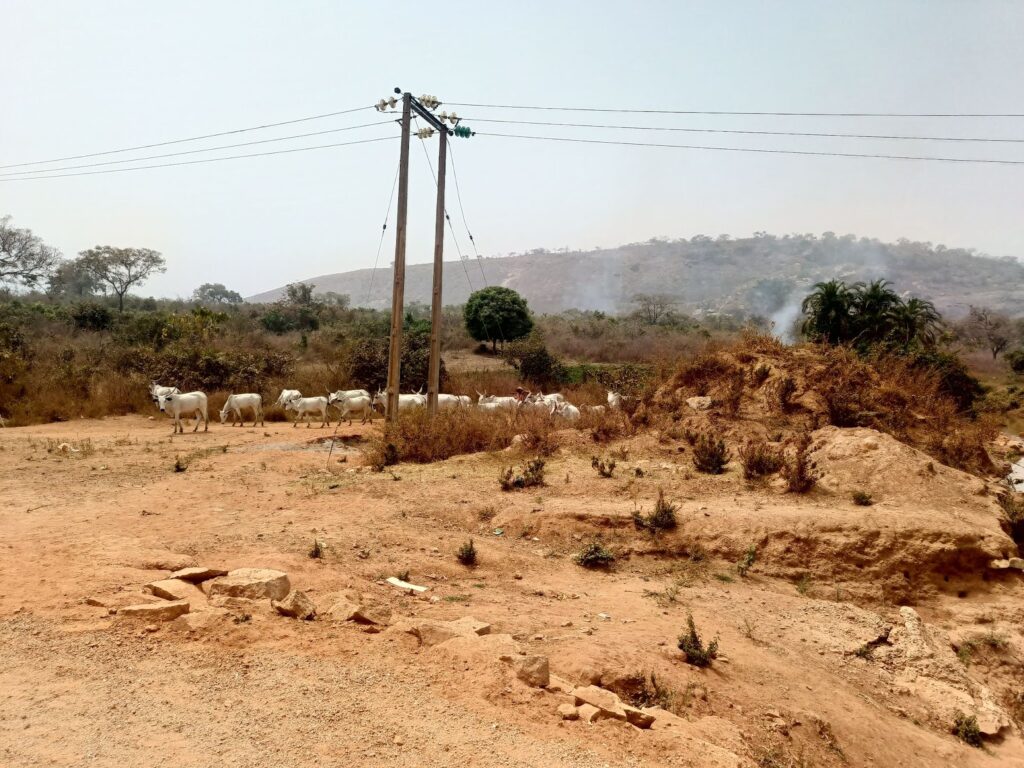
HumAngle’s reporter hopped on a motorcycle and spent 45 minutes riding from Mpape to Shere. Ordinarily, the journey should have lasted less than 15 minutes if the road was in good condition. The villagers and community chiefs blamed Yakubu Lado, a former senator and the 2023 PDP governorship candidate in Katsina, for the condition of the road.
“I read the award letter myself, it is ₦5.4 billion. And this road, from here to Mpape, is not something that’ll take a contractor six months to execute,” Bala Ahmad, one of the community chiefs, claimed. “The work had commenced and culverts were already there. Only for him to cut here where they earmarked millions to reduce some hills so that the road would be flat.”
The chief stressed that what the former senator has executed is less than 3 kilometres, out of over 14 kilometres, “and today he’s nowhere to be found”, a claim five other local chiefs in the community confirmed.
“He just used a fire brigade approach to fill the culvert, which would be washed away three weeks later after a heavy rainfall,” he added.
Lado was evasive when we contacted him for comments. He denied being directly involved but claimed to know the project’s history. He suggested that the person in charge, whom he refused to reveal, is facing problems with variations in the price of things and dollar rise between the time the project was awarded and now.
Asked if he was aware the project was awarded in 2022, long before the sharp economic downturn, he argued that there was “not enough funding” for the project. HumAngle reminded him that the FEC had approved ₦5.4 billion for the project, but the former senator argued that “mostly the problem of these projects is that you will see a project of one billion, they’ll come and budget two hundred million for it”.
“So by the time the contractor finishes, spending just the two hundred million, how can he continue with the job? If you check how much they put in the budget, it’s not more than one point something (billion). What matters is the price of things. When the contract was given, how much was the price of cement?” Lado said.
“These are the factors that contributed to things. So, they have written to the FCTA for the review. If the review had been done, at least, they could have even gone to the site without even waiting for the money.”
The FCT ministry, led by Wike, whom the people of Shere begged to intervene after writing to him, has not responded to inquiries about the abandoned project.
Escape from kidnapers’ den
The mediocrity displayed in the execution of this project would cost many people their freedom in kidnappers’ dens, and some their lives. Not even the police are safe in Shere, residents said. The abandoned road project is frustrating the efforts of the anti-kidnapping squad deployed to the community. When people contact them that someone has been kidnapped along the road, the police say they try to respond quickly, but driving on the road makes it difficult to navigate the terrain.
The issue of security is something that must be handled with all sense of sensitivity, said ASP Johnson James Dominic, the commander of the Anti-Kidnapping Squad in Shere. He would not give detailed information on the challenges they face fighting kidnappers in the area because he does not have authorisation to do so.
Villagers told HumAngle that the police are mostly faced with logistical problems, making their response to emergency calls slow. When community members contacted them about Ibrahim’s abduction that evening, the police swung into action. But by the time they arrived at the scene of the attack, the kidnappers had disappeared into the thick Durmi forest with their captives.
Ibrahim recalled that, even though they were trekking in the forest, they could hear gunshots supposedly fired by the officers. But their abductors changed their routes immediately and started zigzagging.
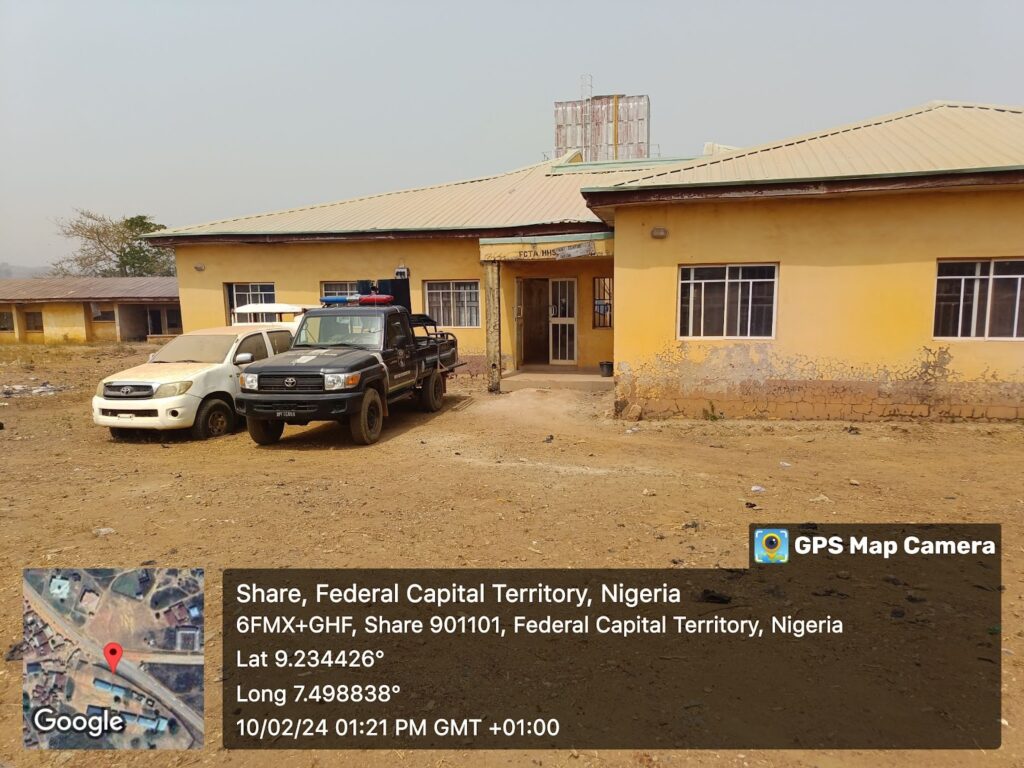
“When they chained us at a location in the forest, one of the kidnappers started making a call telling the person on the other side of the phone that they’ve caught new captives and would bring them forward the following day,” Ibrahim recounted. He knew their journey had only just begun.
Later that night, something dramatic happened. The kidnappers suddenly fell deeply asleep, with one of them snoring “like a pig”.
Ibrahim tapped the other captive. Both of them looked at each other, wondering what would happen next. When they saw that the kidnappers would not wake up after a few hours, they took a bold step. Ibrahim forcefully untied the chain from his leg and helped the other man, who was already fretting that they would be dead men if the kidnappers found out.
They leapt out of the confinement and took to their heels.
“I didn’t even know the direction to take to escape, but the other guy seemed to know the area, as he asked me to go right and walk straight,” he said. “I followed through the way and found myself around Galuwyi, and from there, I knew my way home.”
Asked if he would violate the curfew order again, Ibrahim says he has learned his lesson. What he saw in the forest made him believe no one is powerful in the face of guns, clubs and knives in the hands of ruthless men willing to unleash them upon the slightest provocation.
“I would urge the authorities to come to our aid in Shere; this neglected road project is causing us a lot of problems,” he begged. “My escape from the kidnappers was like a miracle; maybe I would have been a dead man by now.”
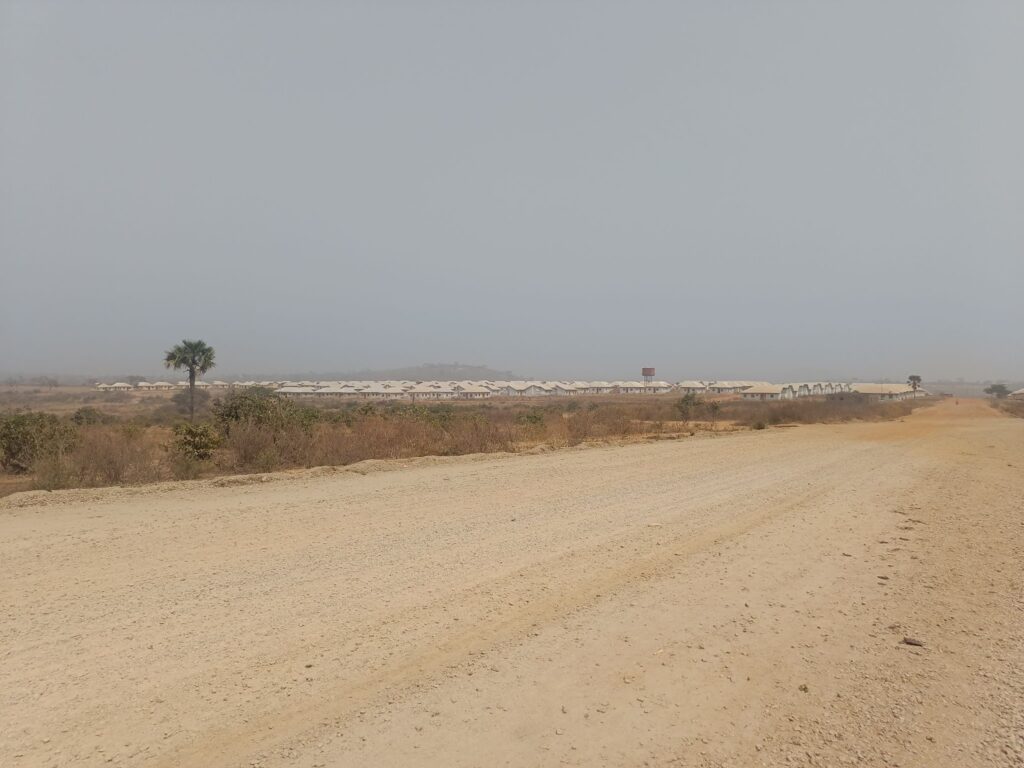
A legion of abandoned projects
Many things are wrong with Shere. The major road in the area is bad and abandoned by authorities. The multi-million naira general hospital has also been abandoned. Community members say they have to travel to neighbouring towns for treatments when they fall sick.
The Shere-Galuwyi Resettlement Area, a housing scheme that made the authorities want to construct a road, has also been abandoned upon near completion. The resettlement site was supposed to accommodate 12 communities dislocated when the Federal Capital Territory Authority (FCTA) was rebuilding Abuja during El-Rufai’s administration. The communities include Gishiri, Jabi Samuel, Jabi Yakubu, Kado 1 and II, Kpadna, Mabushi, Magajipe, Maje, Utako, and Zhilu.
The construction work at the resettlement site, covering an area of about 9,000 hectares, is 75 per cent complete. The structures are built like a neighbourhood system, allowing each neighbourhood to retain its traditional institution and chieftaincy allegiance.
The community also lacks adequate power supply, residents said. The transformer supplying electricity in that area was damaged years ago, and it is taking the local government authority forever to repair it.
“Shere is supposed to have grown beyond what has turned out to be; Mpape is supposed to be under this community, but look at Mpape now. It is far more developed than Shere,” community chief Bala said.
“I pray the government have mercy on us and look at our side.”
Support Our Journalism
There are millions of ordinary people affected by conflict in Africa whose stories are missing in the mainstream media. HumAngle is determined to tell those challenging and under-reported stories, hoping that the people impacted by these conflicts will find the safety and security they deserve.
To ensure that we continue to provide public service coverage, we have a small favour to ask you. We want you to be part of our journalistic endeavour by contributing a token to us.
Your donation will further promote a robust, free, and independent media.
Donate HereStay Closer To The Stories That Matter




